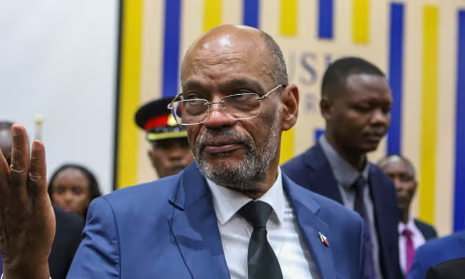Haitian Prime Minister Ariel Henry is now at risk of being ousted after six months in office. He has marked his leadership under pressures of rising political instabilities and protests against his administration. The current crisis points to widespread discontent with his handling of national security, the economy, and seemingly never-ending gang violence.
The Political Crisis
In the summer of 2021, Ariel Henry was appointed prime minister after President Jovenel Moïse was murdered. At least to begin with, considered a caretaker prime minister, Henry’s appointment involved much controversy. Nationwide protests became violent as people felt ever more frustrated that the government was either unable or unwilling to address such fundamental issues as high inflation, food shortages, and gangs taking over many parts of the country with impunity.
Politically, the government has also been found working pretty hard to keep up with any serious political support, and various political factions are demanding his resignation. Other leaders, however, feel that his leadership needs more decisive action over the increasing challenges.
Mounting Protests and Unrest
Protests against Henry’s leadership have been increasing for the last several months. Protesters are taking to the streets, demanding that he step down and that a new government be formed to manage the country’s rapidly deteriorating crisis. This unrest has also been fueled by the prime minister’s failure to form a stable coalition or bring stability to the country.
“We’ve had enough. We cannot continue living in fear while the government does nothing,” said one protestor in the capital, Port-au-Prince. Violence and widespread protests reflect a deepening discontent with political leadership and governance.
International Reactions
Condemnation of the Haiti situation has been an essential pronouncement from the international community. The United Nations and the United States have urged a peaceful resolution of the political plight. These were supported by some countries offering support for an inclusive dialogue, but no clear solutions could be developed in this light.
Haiti needs stability and leadership. We urge all parties concerned to sit down at the negotiating table and work towards an amicable settlement, said a spokesperson for the US State Department.
“Political analyst Dr. Maria Lopez noted that the government of Ariel Henry has failed to attract the much-needed support from both the public and the political elite at large. The total lack of leadership in such a precarious period has placed the country on the edge of further instability.
Another political figure, Jean Michel, declared, “It’s not just about Ariel Henry; it is about the whole system. The government did not show any sign of change. We need leadership that is for the people.”
The Way Forward
The administration’s future with Prime Minister Ariel Henry is still being determined. A straightforward solution to his ouster, which looms big, must be found. The circumstances are fluid, but as things stand, it is clear that Haiti will depend on finding exemplary leadership to deal with its challenges.
Conclusion
Haiti was at a crossroads as it tried to end its protracted political crisis. The growing protests and their demands for change made Prime Minister Ariel Henry’s finishing line near, with the future of the nation uncertain. No doubt, a change of administration is necessary to stabilize a new environment that will lead Haiti away from an intensifying crisis. The days ahead determine whether Haiti could endure the storm or sink further into chaos.















